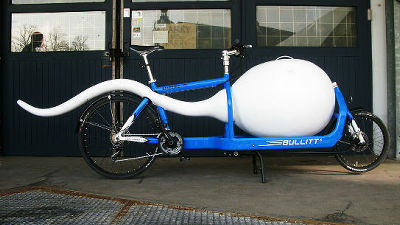A Chinese research team successfully created two male mice as parents to create a child's mouse

Animals performing sexual reproduction fertilize eggs by male and female matings, create fertilized eggs, and create new individuals. It is reported that the research team of the Chinese Academy of Sciences succeeded in the experiment "to generate children from parents of same-sex mouse" that overturn such common sense.
Generation of Bimaternal and Bipateral Mice from Hypomethylated Haploid ESCs with Imprinting Region Deletions: Cell Stem Cell
https://www.cell.com/cell-stem-cell/fulltext/S1934-5909(18)30441-7
Healthy mice with same-sex parents born for first time | Science | The Guardian
https://www.theguardian.com/science/2018/oct/11/mice-same-sex-parents-born-same-sex-reproduction-humans
Chinese Researchers Have Spawned Healthy Mice With 2 Biological Mothers And No Father
https://www.sciencealert.com/genomic-imprinting-silenced-in-haploid-stem-cells-produces-fatherless-mice
Same-sex mice have babies - BBC News
https://www.bbc.com/news/health-45801043
There are kinds of birds, fish, reptiles, amphibians that can produce new individuals by parthenogenesis without mating with male and female. On the other hand, mammals including humans can not make children unless they go through the process of mating and female mating.
Some mammalian genes may or may not be expressed depending on whether the gene is derived from a mother or a father. This phenomenon is called " genome imprinting " or "genomic imprinting", and by the action of genomic imprinting, it is attempted to extract a gene from an individual of the same sex and try to make a new individual, the embryo does not normally develop And that.
In 2004, the research team of Tokyo University of Agriculture focused on the fact that "immature oocytes possess relatively near spermatozoa for genomic imprint genes", and sperm similarity using female derived chromosomes Create a body. By using this we constructed an embryo that has only the female mouse genome and succeeded in the experiment of "generating mice from the two female parents". The mouse born at this time was named "Kaguya" and it was a step to unravel the mystery of genome imprinting.

Although attempts to create children of females using female genes have been successful, there have been no successful examples using male mice. A research team at the Chinese Academy of Sciences conducted experiments to extract haploid embryonic stem cells (ESCs) from male mice and use genetic editing techniques to create children who inherited genes of the same mice.
Embryonic stem cells contain only half of the genes necessary for mice as well as sperm and eggs, but even if two genes from the same sex mouse are combined, they do not develop normally due to the influence of genomic imprinting. Therefore, the research team used genetic editing technology to erase the male characteristics from seven genomic imprint genes.
After that, we injected male-derived embryonic stem cells, which had been edited, into the donor eggs from which the maternal chromosome had been removed, and injected sperm from other mice and fertilized them. And, as a result of transplanting the produced embryos to surrogate mother's mice, 12 babies "baby mouse who inherited genes of male parents" were born.

Unfortunately the baby mouse which inherited the gene from two male could not survive 48 hours or more after birth. However, this is a successful example of the world's first generation of mice from male, and we have taken a big step towards future homosexual research.
In addition, the research team also conducted experiments to extract embryonic stem cells similarly for female mice, edit genes, and erase the characteristics of females from three genomic imprint genes and inject them into eggs as sperm analogs. As a result, 29 animals "Baby mouse who inherited genes from two females" were born, and it seems that there were some individuals that baby mice developed normally and created new children.
Christophe Galichet, a researcher at the Francis Click Research Institute in London, says, "I can not believe that this technology will be applied to human children, but why mammals can only do sexual reproduction It is a very important step to elucidate. "
Related Posts:







